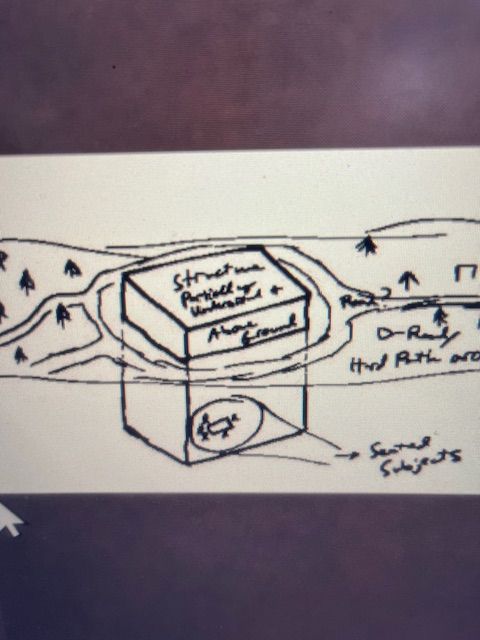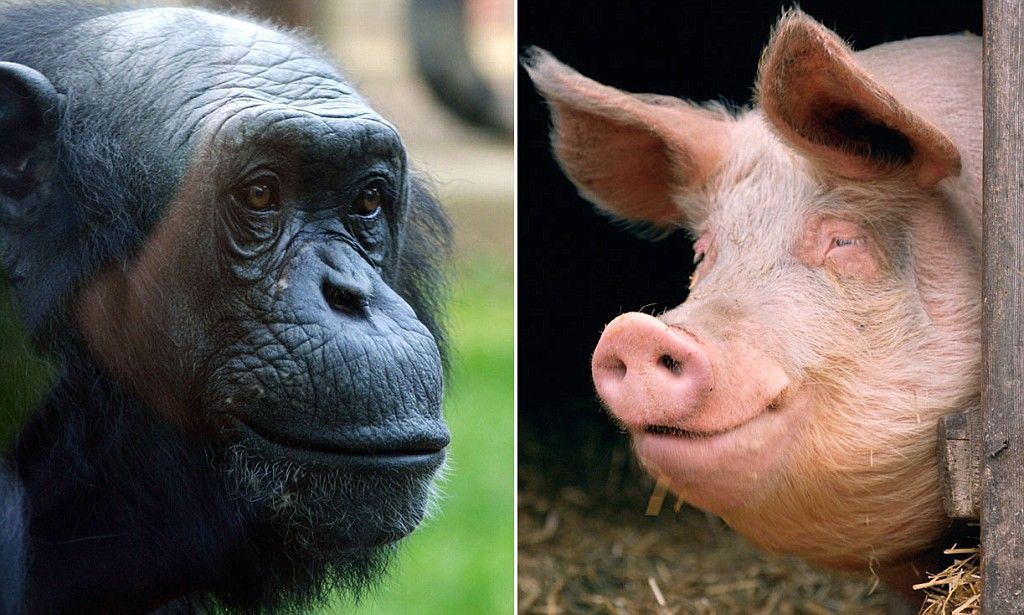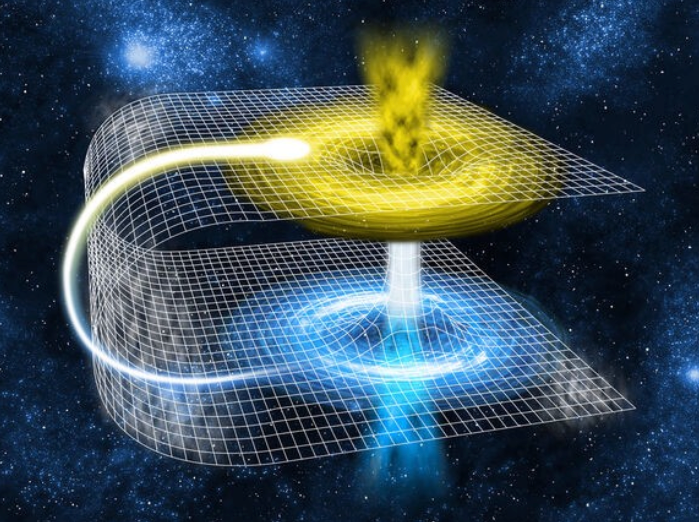#thewelcomemovement
#WelcomeMovement
GOD, SCIENCE, AND THE CREATION PARADOX
MODERN COMPUTER GAMES HAVE CREATED A THEOLOGICAL PARADOX
Today, our blog is diverging from our usual discussion of political reforms, and we are going to talk about science and religion. Science and religion should not be in conflict, period. But science and The Bible say different things, so who’s right?
But are they really different? I’ve read the Book of Genesis countless times. I consider Genesis to be an executive summary of science. It was written in very simple terms for people who lived thousands of years ago, when there was no such thing as higher education or the scientific method. It’s short and sweet, and to the point. It’s lacking in details, and there’s plenty of room for others to build knowledge.
Genesis says the universe started with “Let there be light”. Scientists debated their own ideas for the creation of the universe for centuries. In more recent decades, they’ve settled on the Big Bang Theory, which involved a whole lot of light. I see no conflict at all. Instead I see science validating Genesis.
Genesis lays out the order of creation, everything from dividing heaven and earth to separating land from sea, and it ends with the creation animals, and then people. It’s simple and crude, but not terribly different from science and evolution.
Sir Francis Bacon is recognized as the first modern scientist. He was also a man of great faith. All of his research and discoveries were made from the perspective that science is all about understanding how God did it. Many of his partners in crime of the Renaissance had the same idea. That is the correct perspective, no matter how many modern scientists have deviated into atheism and quantum mechanics.
Wait a minute, the Bible says that God created everything in 6 days, and on the 7th day, he rested, but science says it all took 13.7 billion years. Isn’t that an unresolvable conflict between science and a literal interpretation of the Bible?
Not really. First, other references in the Bible indicate that whenever the term “day” is used, it actually means a period of time, usually a year. But that’s not the best or final answer to the question either.
God is outside of our space and time. To think that God is bound by his own delineation of 6 days, or even 6 years, brings God down a few notches, in terms of his magnificence. He created our space and time, and therefore he is not bound by his own creation. That would be ludicrous. And if God has his own “time” different from ours, it’s only because He created it. We cannot suppose that His increments of time are the same as ours, or that He cannot move either backwards of forwards in His time, or our time. In this sense, God has all the time he needs to create our universe, whether it’s 6 seconds, 6 days, 6 years, and 13.7 billion years of our time.
I have no problem with a literal interpretation of the Bible, but I also know that The Bible is filled with Parables, which are stories made up by Jesus to prove a point, as well as metaphors throughout the Old and New Testaments. The Bible has been translated from Aramaic to Hebrew to Greek to English, and the meaning of words and phrases has changes over time within each language, as does the cultural context in which the message was given. We can barely read and understand the works of Shakespeare, and that was written in English only a few hundred years ago. I am not explaining this to diminish the authority of the Bible, or to suggest that it is wide open to any and all reinterpretations, but instead out of respect for the millions of people who have devoted their lives to the Bible, to it’s translations, to its interpretations, and to its teachings. The more one learns about The Bible, the more one realizes this, and respects our biblical scholars https://blog.logos.com/2017/05/power-spotting-metaphors-bible-study/
The more one learns about science, the more one is pushed in the direction of understanding that there must be a Creator, a God. I prefer not to use the term “intelligent design”, because intelligent design means it was designed by “God or some other creator or authority”, perhaps some sort of ET. Elon Musk famously said that we most certainly live as characters in a really advanced computer program, and our creator is whoever wrote the computer program. That’s not what I believe. I don’t believe in “some other creator or authority.” I believe in God, and that’s why Intelligent Design is not the best theory.
Science has established that it is basically impossible for all the conditions necessary for advanced life to exist in the universe, and on our planet. It is statistically impossible. Having a creator is the only good explanation.
Scientists will counter this point with the Infinite Multiverse Theory, that there’s a gazillion other universes out there, each created by their own Big Bang, and by random chance less than one in a trillion universes has all the right subatomic conditions to allow galaxies and planets to develop, and then to have a solar system stable enough for a long enough time to have a planet with all the right conditions for life to rise, and then intelligent life to evolve. And by default, we are living in that universe and on that planet, because we could not exist in the others.
This scientific theory further elaborates that every time a human being makes a decision, the entire universe is split, and there are now two universes, one with decision a, and one with decision b. This universe splitting continues with every decision made by every person, creating a froth of an infinite number of universes. Well, that’s all laughable, as it raises the human mind to the level of God, and it provides no energy source for splitting the universe. It’s even more nonsensical than saying that a tree that falls in the forest makes no noise unless someone is around to hear it.
To me, the Infinite Multiverse Theory requires a far greater leap of faith than to believe that God is the creator of our one universe, and I’m even OK with our one universe having a few additional dimensions to account for things like dark energy.
Their leap of faith with quantum theory and The Infinite Multiverse is too great for me to stomach. These scientists postulate the existence of this froth of universes by citing the principles of quantum mechanics. Well, quantum mechanics might be true for the subatomic level (we’ll leave that one to the scientists), but there’s not one shred of scientific evidence that it applies to the atomic level, no less to larger things that we can see. They are just grasping at straws. They are starting with the conclusions they want, and then working backwards to try and prove what they already think. They are running scared, because all evidence points to a Creator.
Science is supposed to rely on rationale thought, experimentation, and observation, but instead the Infinite Multiverse Theory is pure faith in pure nonsense, and totally in conflict with their own scientific method. They just cannot explain our existence without God as the divine creator. I can only imagine what kind of stupidity is coming next. And when they have to admit there is a God, they’ll probably say that God must a rebellious 14-year old girl with her hair dyed green, and whose parents are “stupid” and know nothing about the world. God will not be portrayed as a mature and responsible male figure, that’s just too politically incorrect.
Now, let’s get back to whether or not there is a conflict between science and religion. Science says everything “evolved” on it’s own, and religion says that God is the creator. Isn’t that an unresolvable conflict?
Not necessarily. If God created everything, that creation includes the biological process of evolution that started with dust and microscopic life, and concluded with mankind.
Sure, there’s sticking points in Genesis that God breathed life into dust to create man (Genesis 2:7)) and created woman from Adam’s rib (Genesis 2:21-22), and plenty of other matters, but there’s also ample room in a literal interpretation of The Bible for those passages to be seen as metaphors. No Biblical scholar denies that the Bible is overflowing with metaphors.
But the real point of this paper is to outline what I call The Creation Paradox. Recent developments in computer game technology have uncovered a paradox that most theologians and faith leaders have never addressed. Instead of diminishing God and Creation, the logical conclusion of this paradox leads to an even greater awe of God. This will get really interesting, just read on.
There are plenty of people in the Faith community who want to completely deny evolution, even a version of evolution in which God is the master and architect of organic chemistry, and who actively oversaw the evolution of everything. This theological approach towards evolution creates two logical choices, as follows:
Choice #1 is that God can just wish into existence everything through a process of creation. And that His Word independently created each species.
Choice #2 is that God created a system, including all the laws of nature, and all the principles of organic chemistry, and that system can advance and develop according to God’s design.
I am deliberately leaving out Choice #3, which is that evolution occurred without God. It’s statistically impossible, and we’ve already covered that with our discussion on quantum mechanics and The Infinite Multiverse.
Now, of Choices #1 or #2, which is more amazing? Which is grander? Which generates more respect and love for God the creator? Tough question, and in order to answer, the first analogy I’m providing is a model train set. What’s more amazing,
(a) A model train set complete with a village and rural landscape, or
(b) A model train set, complete with a village and rural landscape that changes and develops over time? Imagine a train set that evolves and improves on it’s own, as if it’s some kind of really advanced real-life computer game. And it’s not just the train that is evolving, but the village and the landscape.
Option (b) makes the train set in option (a) look simple, stale and unchanging, which it is.
The train set with the village and rural landscape that evolves and develops is far more impressive. It’s far grander and more astounding. And whoever could create that train set is really super-amazing. Well, there’s no such thing as an evolving train set, but we have created computer games like Forge of Empires. In Forge of Empires, the player builds an entire civilization over time.
Nobody would even suggest that a single snapshot in time of a Forge of Empire player’s empire is more impressive than the entire evolving game. And that cuts to the core of The Creation Paradox. In our modern interpretation of Creationism, the Creationists are essentially saying that a single snapshot in time, right now, is more impressive than the entire process. It’s not. And the simple, stale, and unchanging model train set is not more impressive than a model train set that grows and evolves.
Creationism should instead by interpreted using the computer game analogy, that the entire process of evolution is truly astounding and ongoing, and entirely driven by the Word of God and the majesty of His laws of nature and his design of organic chemistry.
Evolution is not to be interpreted outside of Creation, and should not be seen as a challenge to Creation.
Evolution is proceeding according to the Will of God, and it is following His divinely created law of nature and principles of organic chemistry. We’ll save for now any discussion on whether or not all the scientists have got the process and mechanisms for Evolution right, and the lineup of human ancestors and missing links. They probably don’t have all the facts straight, especially on matters of hybridization and gene flow, but science can and will grow and advance. Ideas considered to be heresy may someday be mainstream science.
By incorporating evolution and increasing people’s understanding of the awe of God, creationism conquers evolution. The battle is over, and there is a clear winner, creationism.
So the conclusion of The Creation Paradox is that the Christian who accepts a little wiggle room such as metaphors into a literal interpretation of the Bible can believe in a God that made this most amazing evolving train set that we can call our universe, while the Christian who hangs onto every letter of every word, and denies the metaphors, is left with a simple, stale, and unchanging creation.
Both are creations. Both can legitimately be called versions of Creationism. One is simple, stale, and unchanging, and the other is dynamic and astounding. Hmmm, which do you want? I want the one that makes God more astounding, and more amazing than ever.
The universe is not simple, stale, and unchanging. I cannot have that. That evolving train set and our modern computer games pale in comparison to our evolving universe and our evolving life on Earth. We would be missing out on the true and greater understanding of God’s glory if we deny that he is the architect and guiding force of Evolution. I want to feel humble before God. That evolving universe which he created really makes me humble. I am just in total awe. I don’t want to accept a God that is a fraction of His actual greatness.
And while Christians are commanded to know God and to love God, it is also true that even with a lifetime of spiritual studying and learning, nobody can ever grasp a full understanding of God. Anyone who says they’ve arrived and knows it all has actually barely started their journey. This is all part of being humble before God.
Science and religion are not in conflict. We’ve covered a lot, and really there’s only one remaining major bone of contention between science and religion, and that’s the damn atheist scientists. A high majority of modern scientists are atheists, and they are floundering in political correctness. How dare they say it all happened without God. That’s the problem, and that’s the only real problem. May God bless America and all of humanity. May our scientists find peace and inspiration, and end their war on God.











